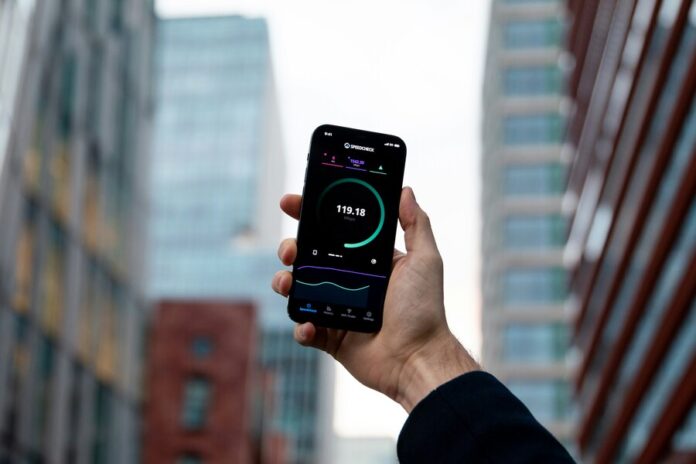
The advent of 5G technology is poised to transform in-store retail experiences by blending digital innovation with physical spaces. 5G in retail is enabling seamless integration of online and offline shopping by offering faster connectivity, enhanced network reliability, and the ability to process vast amounts of data in real time. Retailers are leveraging 5G to revolutionize mobile payment solutions, contactless shopping, and personalized experiences.
There are plenty of everyday activities that have already been revolutionized by 5G. Take one look at the review of Gratowin Casino and you’ll see how important a stable and fast internet connection is for a great online gaming experience. Just as with casinos, physical retail experiences are also being changed very quickly, and this is how:
5G Technology: The GameChanger for Retail
5G technology offers unprecedented speed, low latency, and improved network reliability compared to its predecessors. These features are particularly transformative for the retail industry because the combination of instant connectivity and real-time data processing can elevate the shopping experience.
Key aspects of 5G’s impact on retail include:
- Enhanced Customer Engagement: Faster connectivity allows for interactive in-store displays, augmented reality (AR) experiences, and tailored recommendations.
- Operational Efficiency: Real-time data enables better inventory management and streamlined logistics.
- Seamless Transactions: Mobile payment solutions powered by 5G make transactions faster and more secure.
Revolutionizing Shopping Through 5G Retail Use Cases
Contactless Shopping and Checkout
The COVID-19 pandemic accelerated the demand for contactless shopping, and 5G technology is taking this convenience to the next level. Retailers are introducing 5Gpowered contactless shopping experiences so that customers can scan, pay, and leave without interacting with a cashier.
For instance, Amazon Go stores have piloted the concept of “Just Walk Out” technology, utilizing sensors, computer vision, and 5G networks to track items picked up by shoppers and automatically charge their accounts.
AR and VR Experiences
Interactive technologies like augmented reality (AR) and virtual reality (VR) are now more accessible in retail settings thanks to 5G’s low latency. Shoppers can use AR apps to visualize furniture in their homes or try on virtual outfits in fitting rooms. This creates an immersive and engaging experience like never before.
IKEA’s AR app, powered by 5G, lets customers visualize how furniture would look in their space, enhancing confidence in purchase decisions.
Mobile Payment Solutions and Network Reliability
5G-enabled mobile payment solutions are transforming how customers pay for goods. The improved network reliability ensures that transactions are processed faster, even in crowded areas with high data demand, whether you want to buy new clothes or wish to try the best craft beer available.
- 5G Mobile Online Shopping: This technology combines the convenience of online shopping with the benefits of physical retail experiences by allowing shoppers to use their smartphones to pay seamlessly.
- T Mobile 5G Impact on Retail: TMobile is leading the charge in the U.S. with its 5G network, helping retailers offer frictionless checkout options. TMobile 5G in the retail industry is streamlining the shopping process while maintaining robust security protocols via solutions like QR code payments and NFC-based solutions.
5G and Personalization in Retail
DataDriven Insights
One of the biggest advantages of 5G in retail industry is the ability to collect and analyze large volumes of customer data in real-time. This empowers retailers to offer personalized product recommendations, targeted promotions, and customized in-store experiences. For example, smart shelves equipped with 5G sensors can identify when customers pick up items and suggest related products or discounts via their smartphones. This tailored approach increases sales and improves customer satisfaction.
Loyalty Programs
5G technology in retail also enhances loyalty programs by enabling instant rewards and gamified shopping experiences. For example, customers can receive points or discounts based on their in-store behavior.
The Role of 5G in Omnichannel Retail
As the line between online and offline shopping blurs, 5G in retail enables a seamless omnichannel experience. Customers can use their phones to search for products, check availability in nearby stores, and receive directions, all while shopping in-store.
5GPowered ClickandCollect
Retailers are using 5G networks to improve click-and-collect services. Real-time inventory tracking ensures that customers can pick up their online orders in-store without delays.
Integration with IoT
5G’s capabilities allow retailers to connect Internet of Things (IoT) devices like smart carts, kiosks, and beacons. These devices enhance the customer journey by providing personalized offers and reducing wait times.
Challenges in Implementing 5G Technology in Retail
While the benefits of 5G in the retail industry are clear, its implementation comes with challenges:
- Cost of Deployment: Installing 5G infrastructure requires significant investment, which can be a barrier for smaller retailers.
- Data Privacy Concerns: Real-time data collection raises questions about customer privacy and the secure handling of sensitive information.
- 5G Scalability: Ensuring consistent performance across multiple locations remains a technical hurdle for retailers expanding 5G services.
Pilot Projects and Future Possibilities
European and U.S.-based retailers are already exploring 5G’s potential. For instance, both Vodafone and TMobile have launched their solutions:
- Vodafone 5G in Retail: Vodafone partnered with fashion retailers to test AR-enabled fitting rooms and real-time stock updates, creating a more interactive shopping experience.
- TMobile 5G Impact on Retail: TMobile is working with supermarkets to introduce smart carts that guide shoppers through aisles and suggest personalized discounts. Once T Mobile 5g in retail industry is developed, it’ll cause a widespread change in the industry.
Future of Retail 5G
Looking ahead, 5G technology in retail is set to enable:
- Holographic Displays: Interactive holograms that provide product information and engage customers in new ways.
- AI-Powered Customer Assistance: AI tools can instantly analyze customer queries and provide tailored assistance with the help of 5G.
- Fully Automated Stores: 5G networks will power stores with minimal human intervention, where robots and AI handle inventory, checkout, and customer service.
Conclusion
The rollout of 5G technology is not just an upgrade in connectivity but rather a transformative force for the 5G retail industry. By enabling contactless shopping, mobile payment solutions, and immersive experiences, 5G in retail is enhancing convenience and engagement. While challenges like scalability and privacy remain, initiatives like TMobile 5G in the retail industry and pilot projects worldwide showcase the potential of this technology.
As retailers continue to innovate, the future of retail 5G promises to merge digital and physical shopping experiences, creating a smarter, faster, and more personalized journey for consumers. With 5G as the backbone, the retail landscape is set to evolve into an interactive and data-driven ecosystem.








